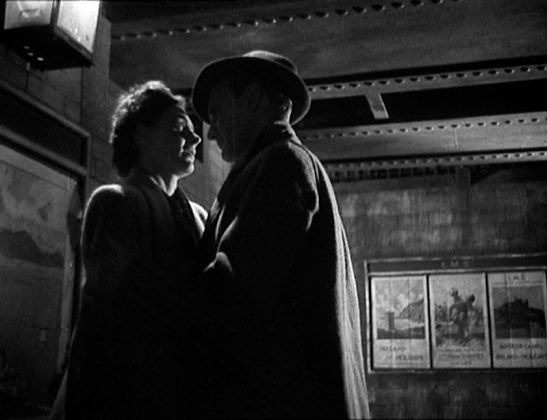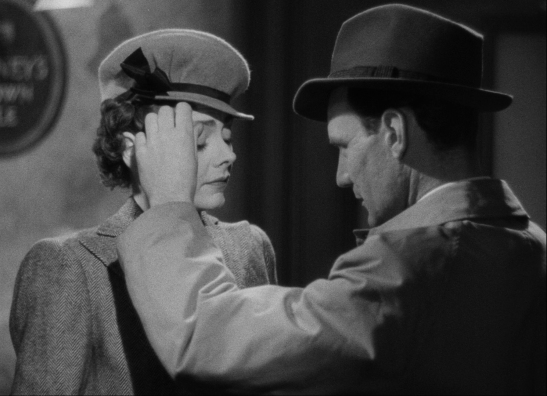2015 Movie Challenge: Brief Encounter
40/52: A movie that made you cry
This can’t last. This misery can’t last. I must remember that and try to control myself. Nothing lasts really. Neither happiness nor despair. Not even life lasts very long. There’ll come a time in the future when I shan’t mind about this anymore, when I can look back and say quite peacefully and cheerfully how silly I was. No, no, I don’t want that time to come ever. I want to remember every minute, always, always to the end of my days.
Indeed. It’s been a while since I last watched Brief Encounter – about as long as since I lived it – and I wondered if it would have the same devastating effect as it did a few lifetimes ago. It did. Watching it again, even now, still brings up all manner of deeply painful feelings, realizations, memories, etc., etc…. This is, of course, a testament to the film’s power, insight, sensitivity, and sheer accuracy in its portrait of what could have been a dull, soapy would-be love affair.
When the film begins, we’re at a little “refreshment room” at Milford station. Laura Jesson (Celia Johnson) and Alec Harvey (Trevor Howard) are seated together at a table while the ticket taker and the waitress flirt with each other, oblivious to the apparent misery between Laura and Alec. During an especially pregnant moment between the two, a dimwitted acquaintance of Laura’s ingratiates herself with them. The bell rings for Alec’s train, and he leaves. When Laura’s own train drops her off at her nice suburban home, with her two cute kids and her good-natured husband, she turns on the radio. It’s playing Sergei Rachmaninov’s Piano Concerto No. 2* – and Laura remembers her tortured, unconsummated affair with Alec. They meet by chance at Milford. Every Thursday, she goes into Milford to do some shopping, change her library book, see a movie, and return home. When she watches the express train roar past, a piece of soot lands in her eye. Alec – a stranger – offers to help her remove it. He’s a doctor, you see. She doesn’t really think about it, but she happens to see him again the next week. They exchange friendly hellos, and Laura realizes she wonders about him a bit. The following week, they have lunch together, and go to a movie. They get along famously – two lonely souls who’ve found kindred spirits in each other – and Alec asks her to promise that she’ll meet him there again next Thursday. After another beautiful Thursday together, Alec asks, “You know what’s happened, don’t you?” She does. They’re in love. They’re both more or less happily married, each with a couple of kids, but they can’t stop what they feel any more than they could stop a train. The guilt tears them both apart – Laura especially – and after a failed attempt to consummate the relationship in Alec’s friend’s flat, they resign themselves to the fact that they have to end it. We then re-join them in the refreshment room, saying their permanent goodbyes, when Laura’s idiotic friend interrupts them. Alec leaves, and Laura considers throwing herself in front of the express train, but just misses her chance (or just loses her nerve.)
I mentioned the accuracy of Brief Encounter. I think everyone who’s had a fierce crush knows at least some of what this movie gets right: the torment, the wondering, the way each chance meeting and exchange of small talk goes from a piece of grit to a pearl in the heart and mind of the infatuated one. You’ve been there, you’ve done that; we all have. Not everyone knows the pain, misery, degradation, and torture of adultery – but it is far less sexy than it’s often portrayed, and Brief Encounter gets it right. It’s entirely believable, for instance, that Alec would be the ardent pursuer, and Laura the passionate accomplice: he’s the one who says he loves her first, he’s the one who suggests going to his friend’s flat so that they can consummate their love, he’s the one who tells her that he’d stay or go as she commands. Laura loves him deeply, but she’s less capable of throwing all caution to the wind. She knows there’s too much in the way, too much keeping them from really being happy, too much guilt and shame at having to creep around and steal kisses in the shadows. And yet, she can’t stop herself.
The people in this film are very middle-class and English. The film was made in 1945, just at the end of the war, but set in the late 1930s before it began. In his essay for the Criterion Collection edition of Brief Encounter, Adrian Turner calls it the “British Casablanca“: an inimitable product of its time and place, mixing romance into the broader questions of just what was happening to the world they all lived in. Where Casablanca ends with sunny American optimism and a little bit of noble heartbreak, Brief Encounter almost ignores the war completely – these people live in a world with trains running on time, chocolate and champagne, wide-open windows, etc. – but it’s still very much a product of its time. It’s impossible not to wonder if Laura wonders whether she should just throw aside all middle-class restraint, go to bed with Alec, and cherish a few moments of bliss before the blitz. I mean, of course she wonders that – but the stakes are different if she assumes the world is about to end.
I love this film, but I find it hard to watch. There’s no one to blame for their infidelity, no reason for them to rely on each other. We never meet Alec’s wife, but we meet Laura’s husband, Fred (Cyril Raymond). He’s kind, gentle, affectionate, steady – and Laura herself says that, until she met Alec, she believed she was happy. She probably was, too, like a pre-apple Eve. Alec and Laura may have been able to build a happy life together, too, but they just found each other at the wrong time – and what can you do about that? It’s all just horribly painful. I expect it is for anyone watching it; all the more so if you’ve lived it.
*Fans of Billy Wilder and/or Marilyn Monroe will remember the piece’s significantly less tragic use in The Seven Year Itch.
Apparently, Wilder was inspired by the friend’s flat subplot, and took that as the jumping-off point for The Apartment; but I do wonder if The Seven Year Itch isn’t a sort of comedic remix of Brief Encounter. If no one else has written a dissertation on that, I hosey.






